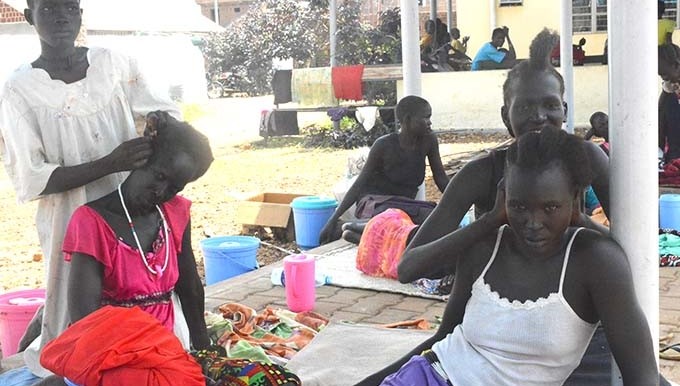The ministry of health and the United Nations Population Fund (UNFPA) has launched a five-year National Obstetric Fistula Strategy aimed at ending the condition that has affected over 60,000 women across the country.
The health stakeholders say obstetric fistula can be eradicated with concerted effort.
An obstetric fistula is a hole between the birth canal and rectum or bladder that is caused by prolonged obstructed labor, leaving a woman incontinent of urine or feces or both.
The strategy outlines an action plan, development and application processes, areas of priority, roles and responsibilities, financing, and resourced mobilization mechanisms. The plan is expected to be funded by the government and developmental partners.
Gillian Gutts UNFPA midwifery specialist speaking during the launch ceremony at Juba Teaching Hospital, on Friday, said the strategy aims at making those affected realize their fundamental human rights.
“The strategy comes with the 5-year costed implementation plan, the action plan for the elimination of obstetric fistula for the period 2019-2023 and will guide the implementation of prevention, treatment and social reintegration interventions for obstetric fistula. The national strategy is a call to realize the fundamental human rights of all women and girls in South Sudan, with special focus on most left behind, excluded and shunned by society,” Gutts added
For her part, the Minister for Gender, Child and Social Welfare calls on the parliament to enact laws that protect women and girls from acts that make them develop the condition.
“All stakeholders should rely on efforts to end this dehumanized condition because obstetric fistula is one of the most serious injuries that can occur during childbirth and leaves women’s urinary end due to an abnormal opening between the birth canal and urinary system and the rectum,” Aya Benjamin noted.
In 2018, UNFPA said 75 percent of women treated for fistula in South Sudan testified to being abandoned by their husbands and family members. In the same year, over 800 women benefited from the annual fistula repair campaigns, and over 74 cases of fistula were treated.
UNFPA added risk factors causing fistula in South Sudan include early and forced marriages, teenage pregnancy, poor health infrastructure, and poverty.
According to the Ministry of Health, from 2006 up to date, over 60,000 obstetric fistula cases have been registered.




